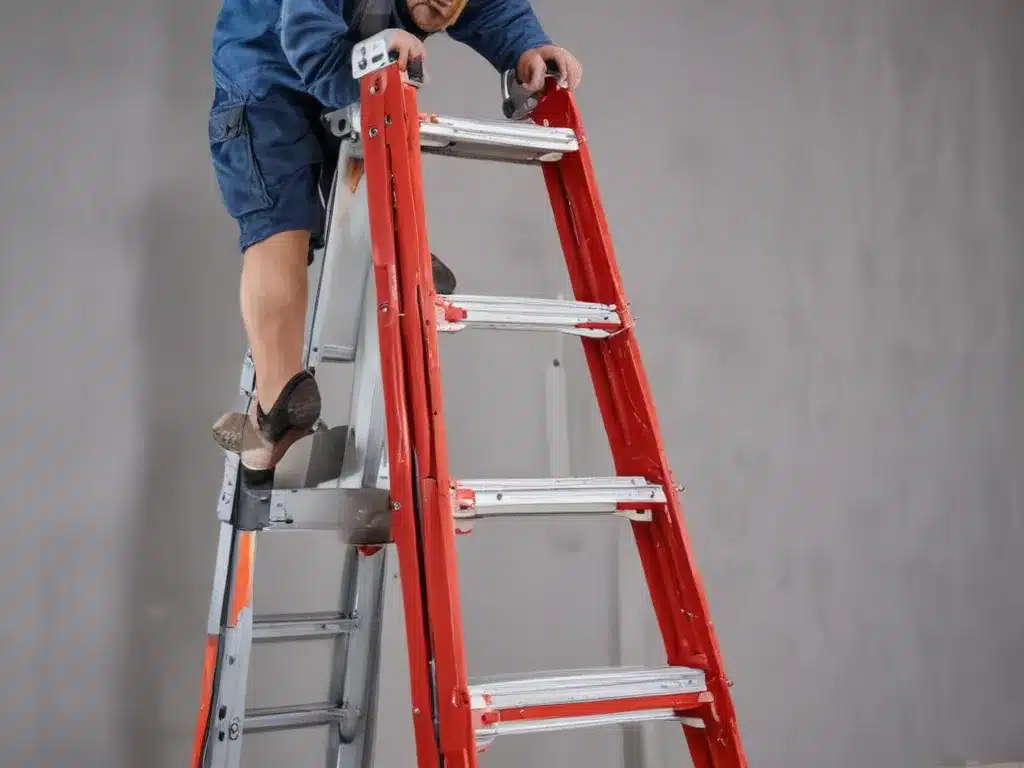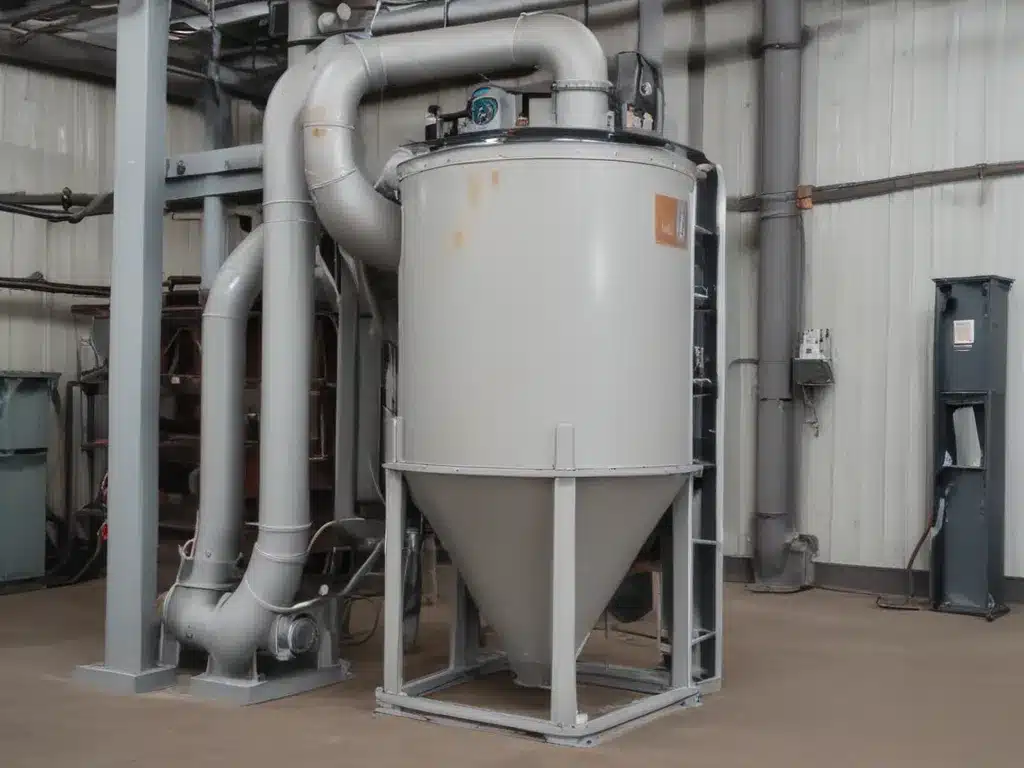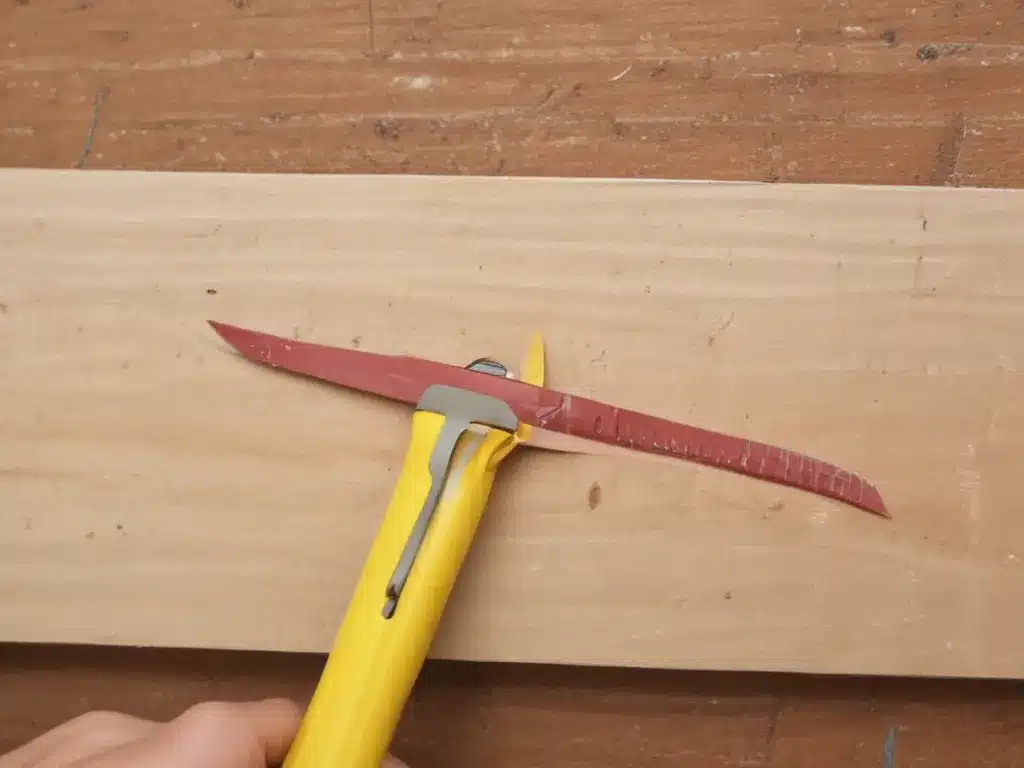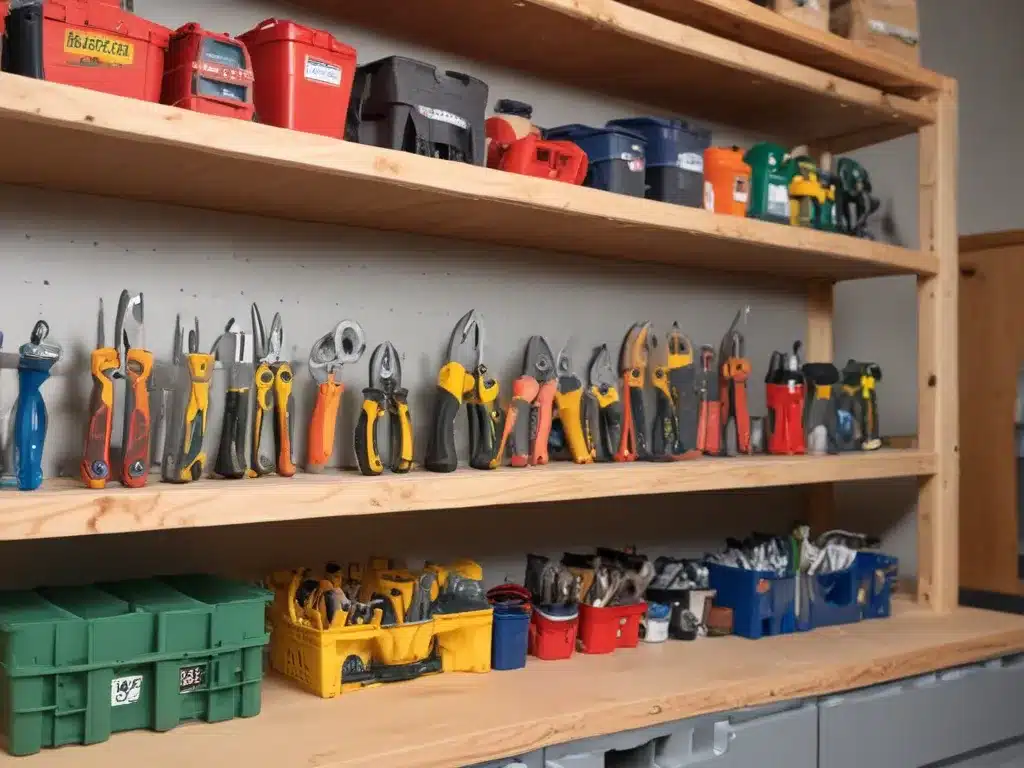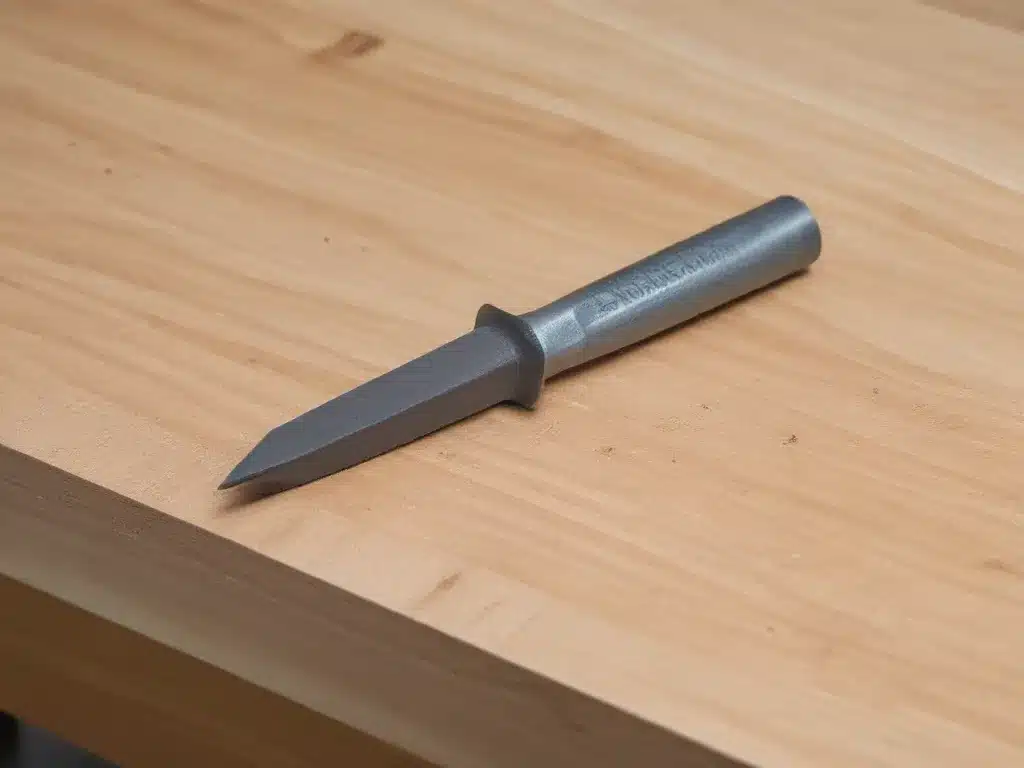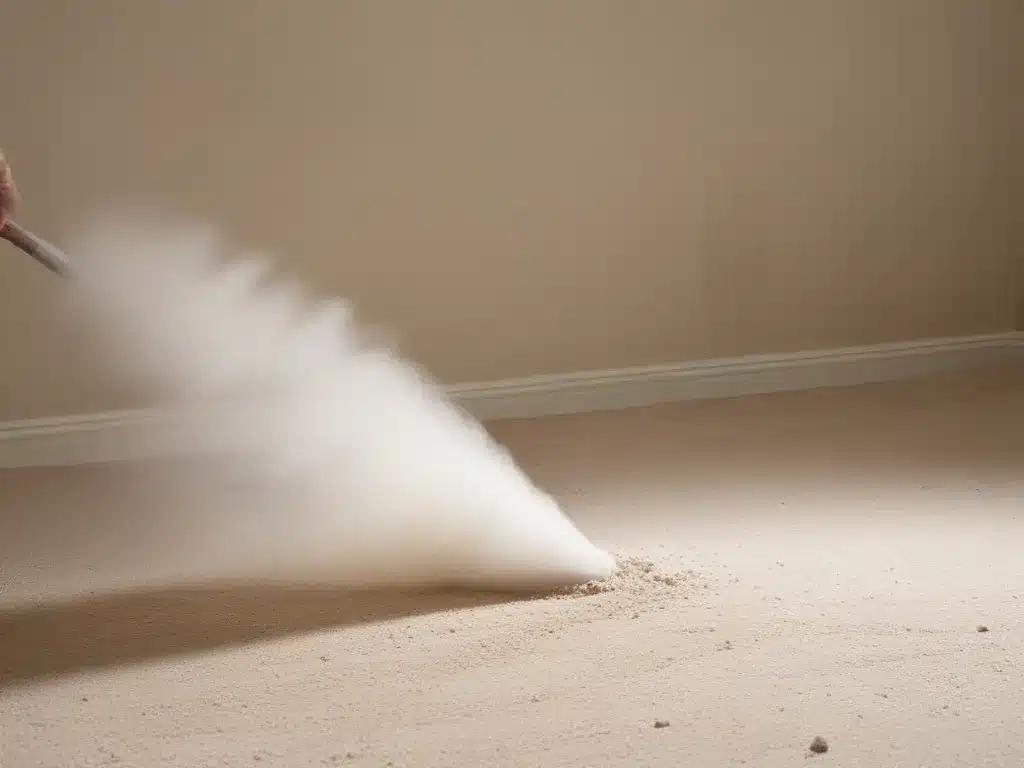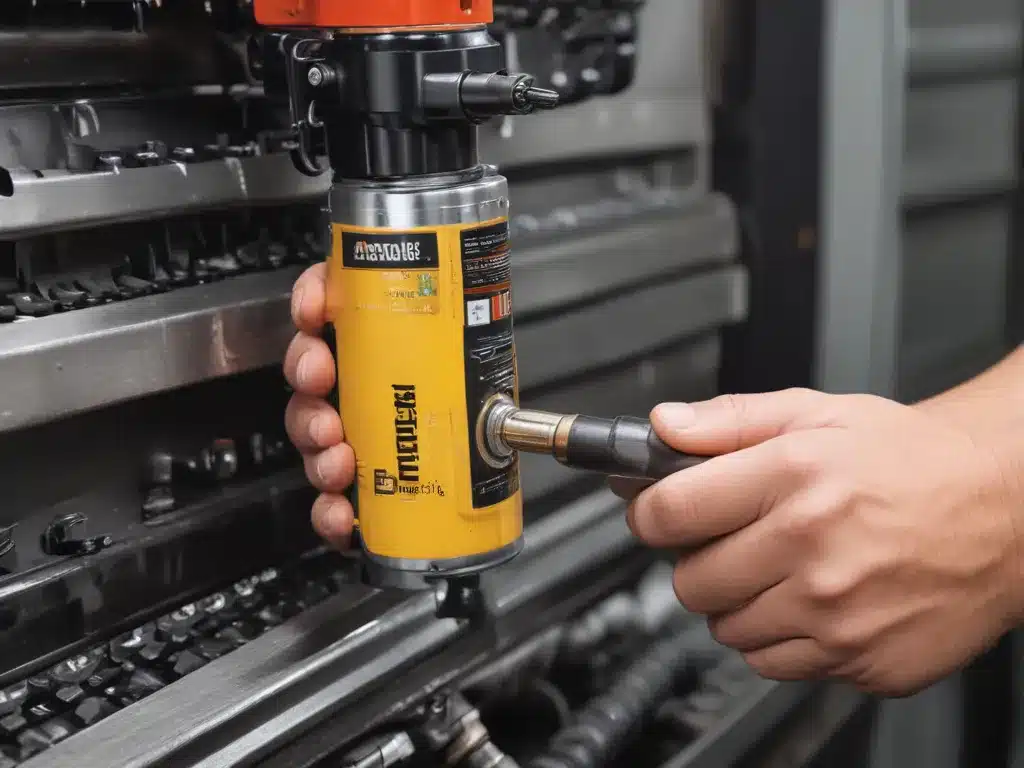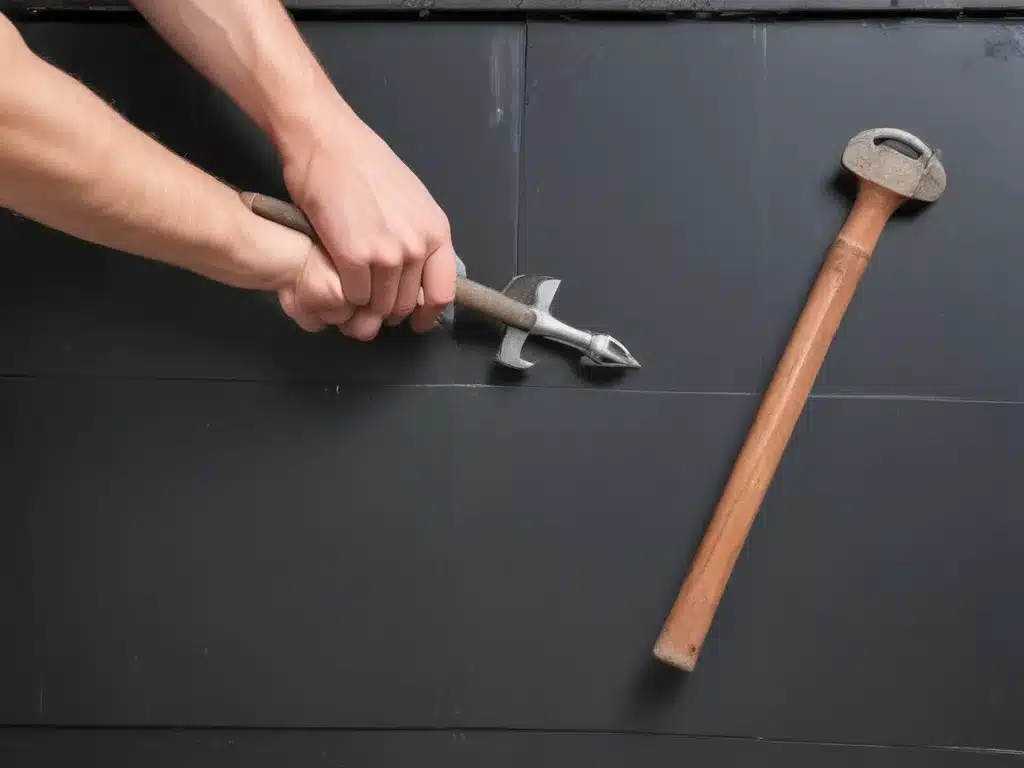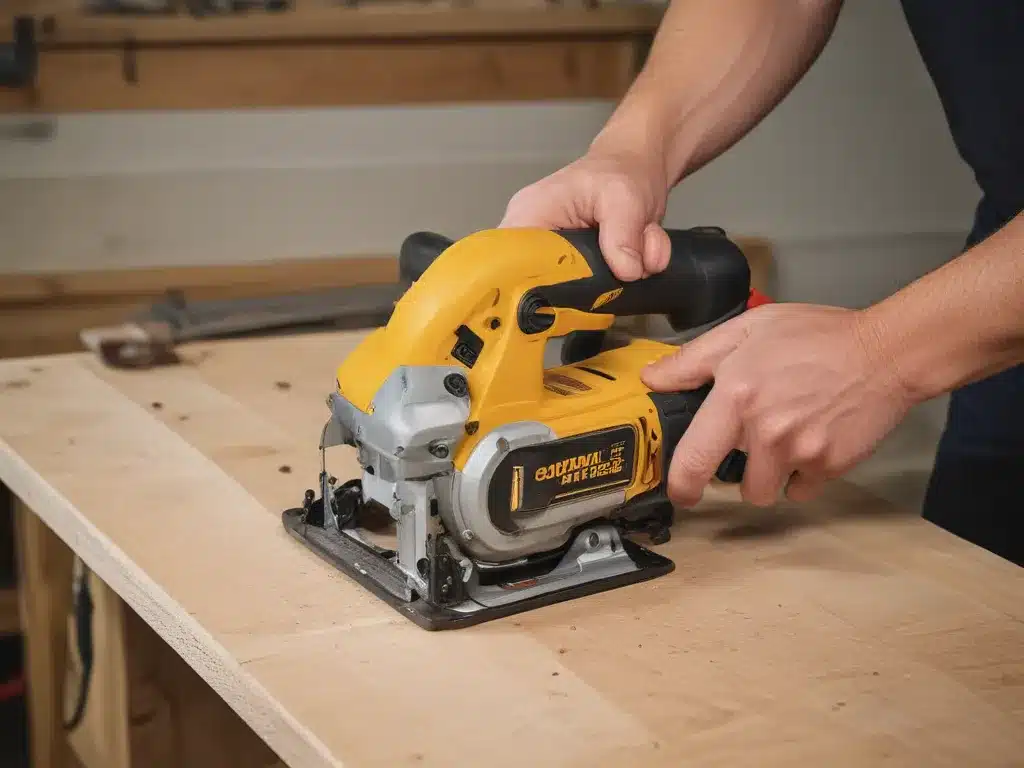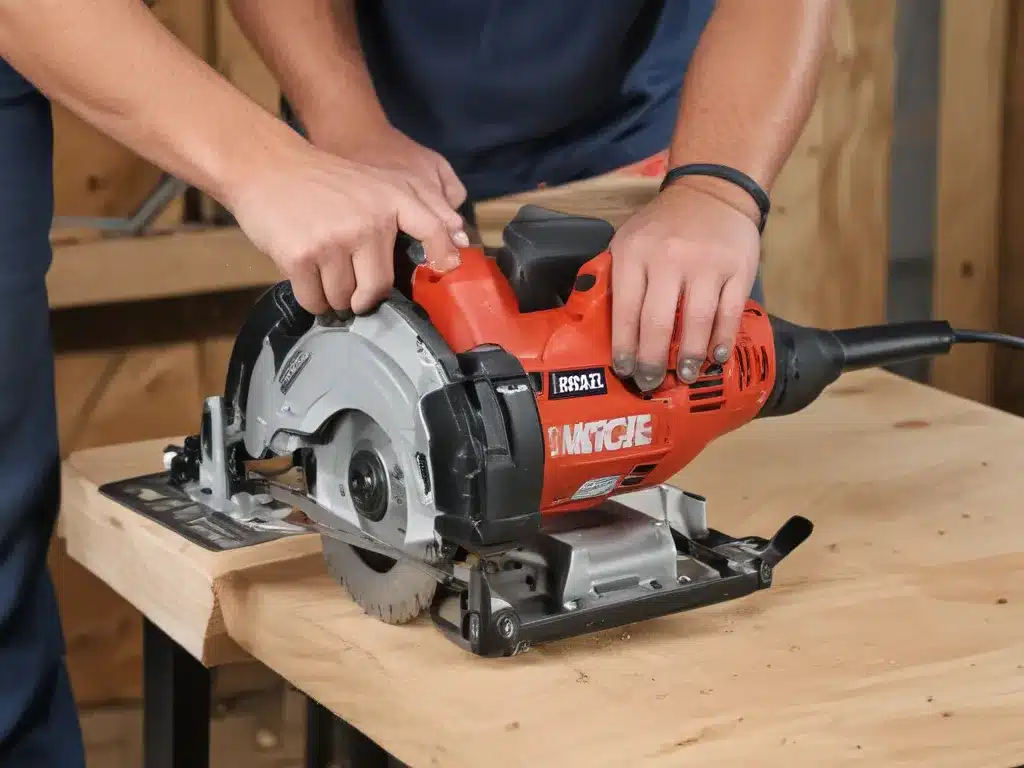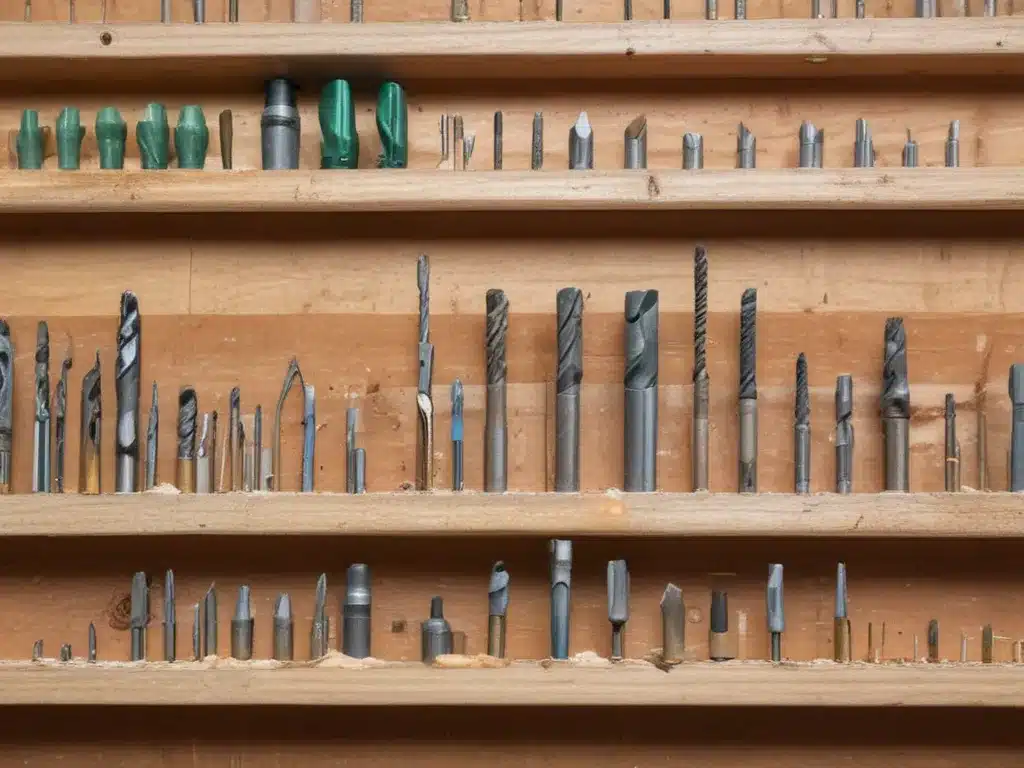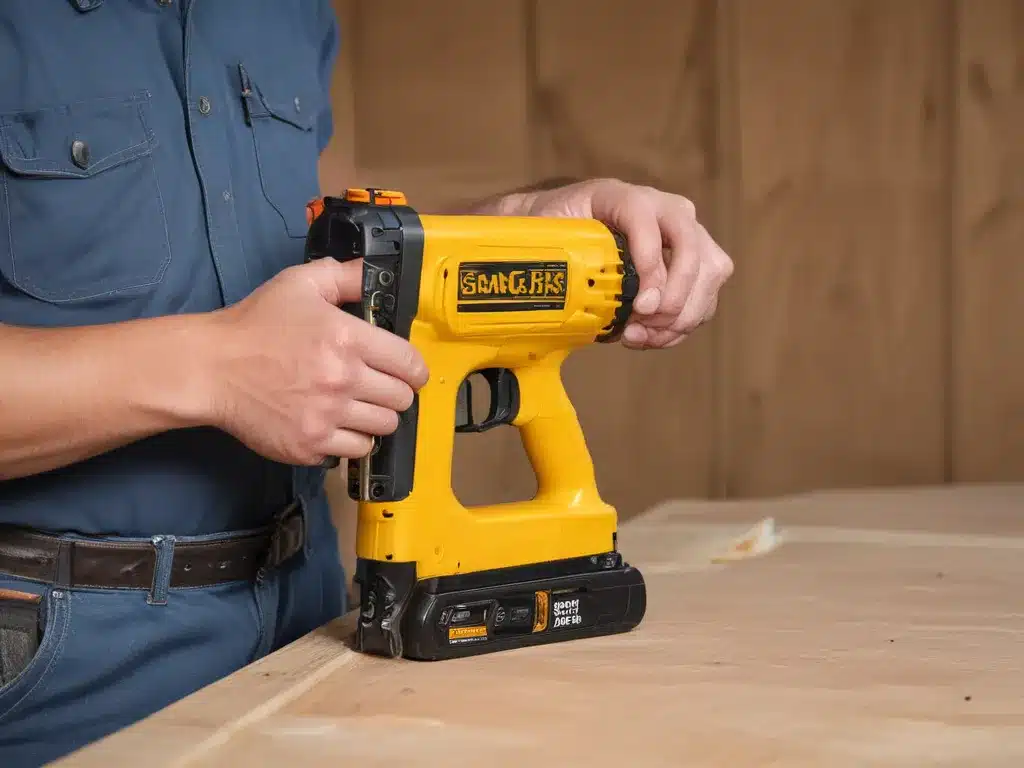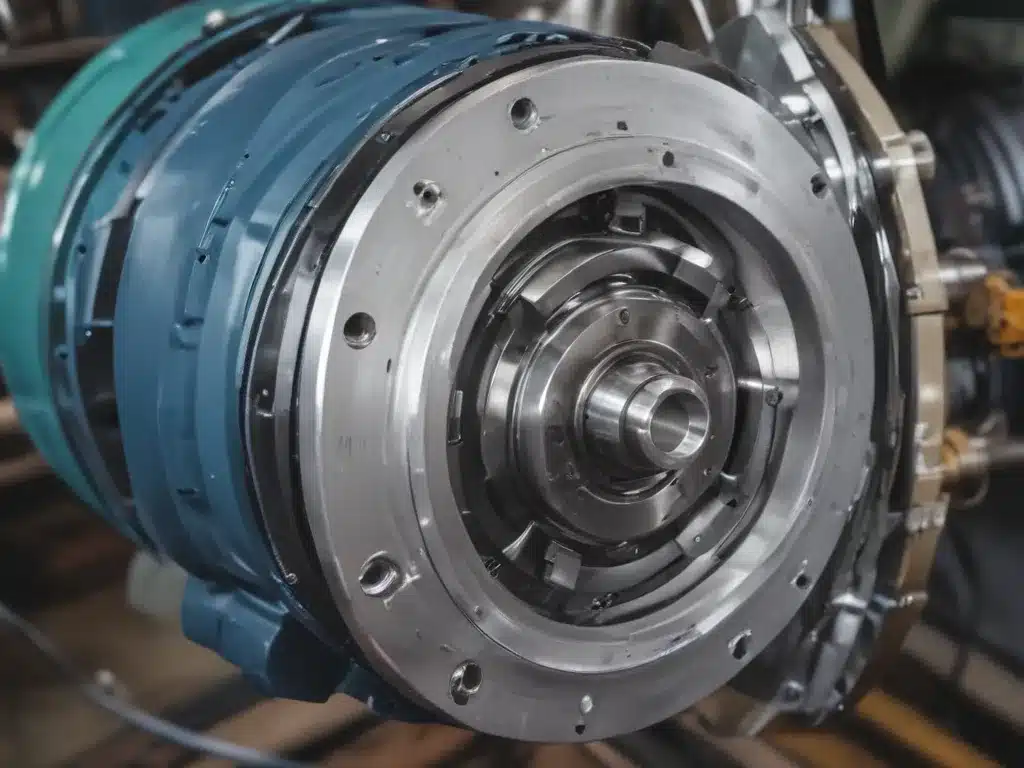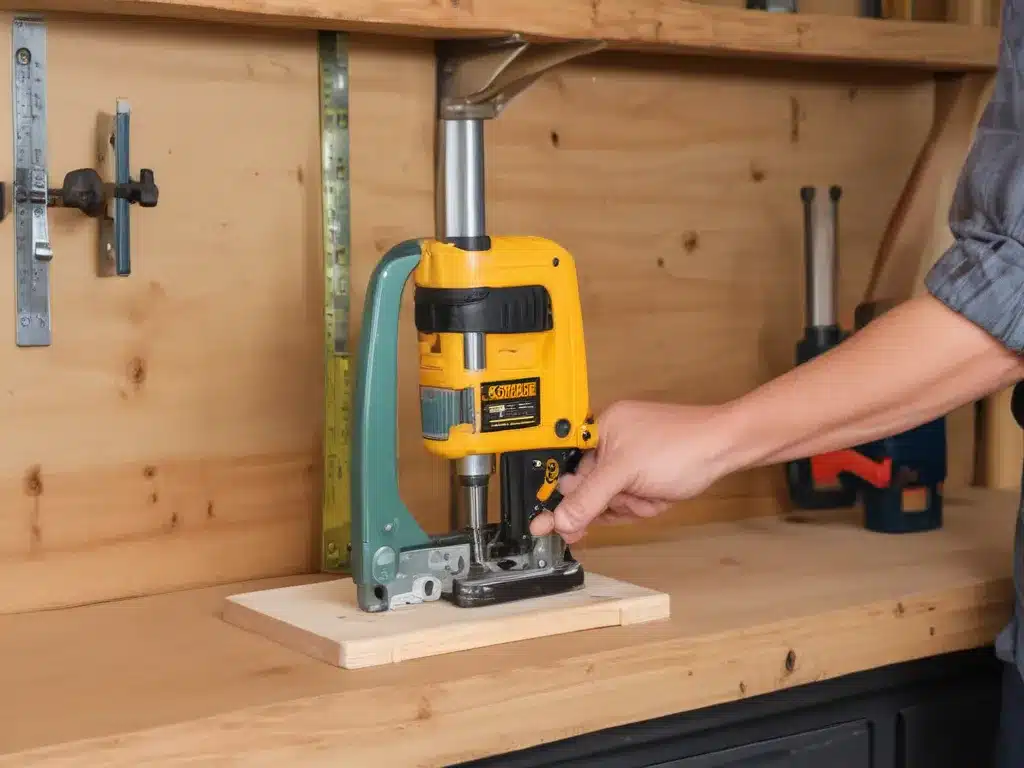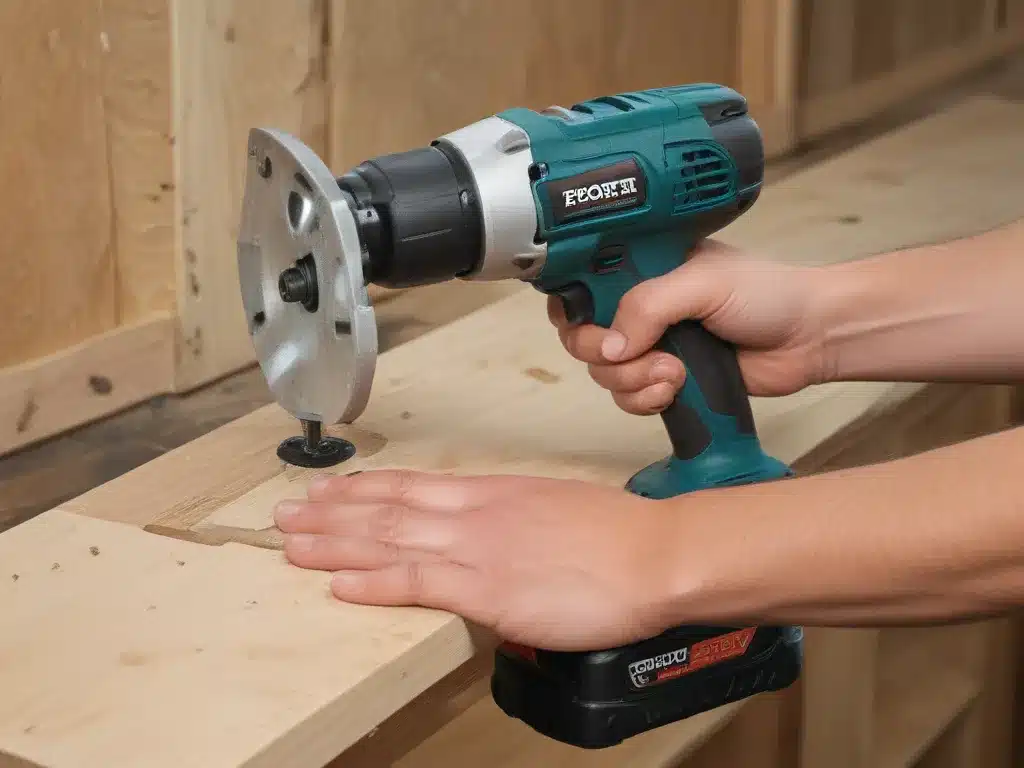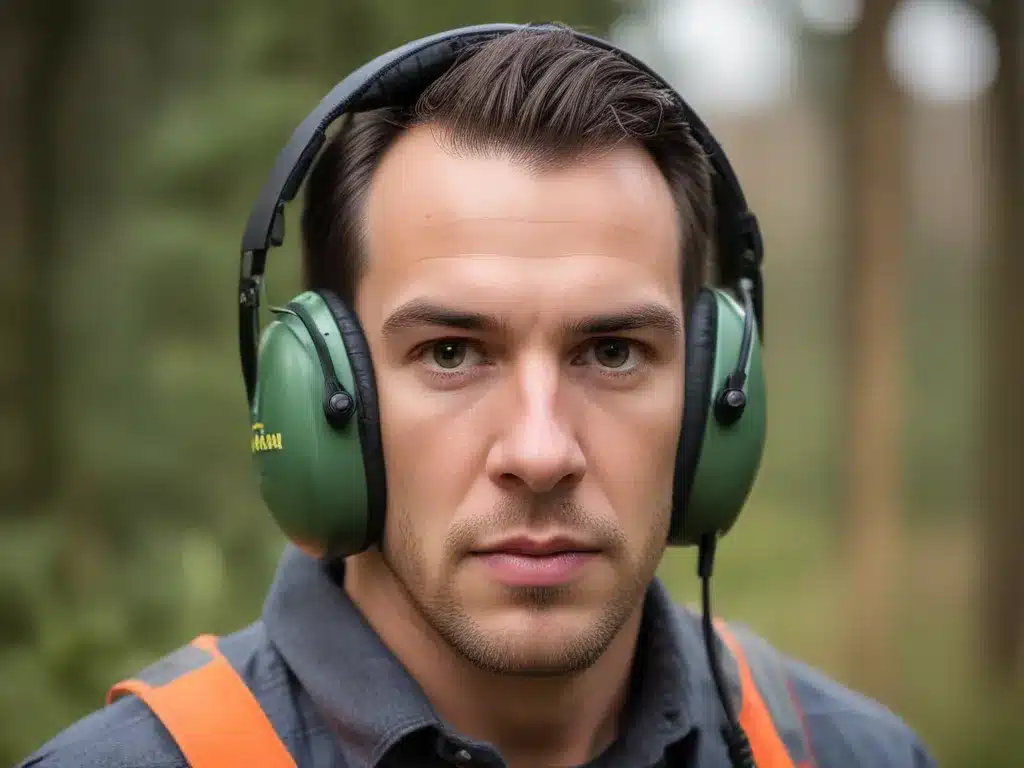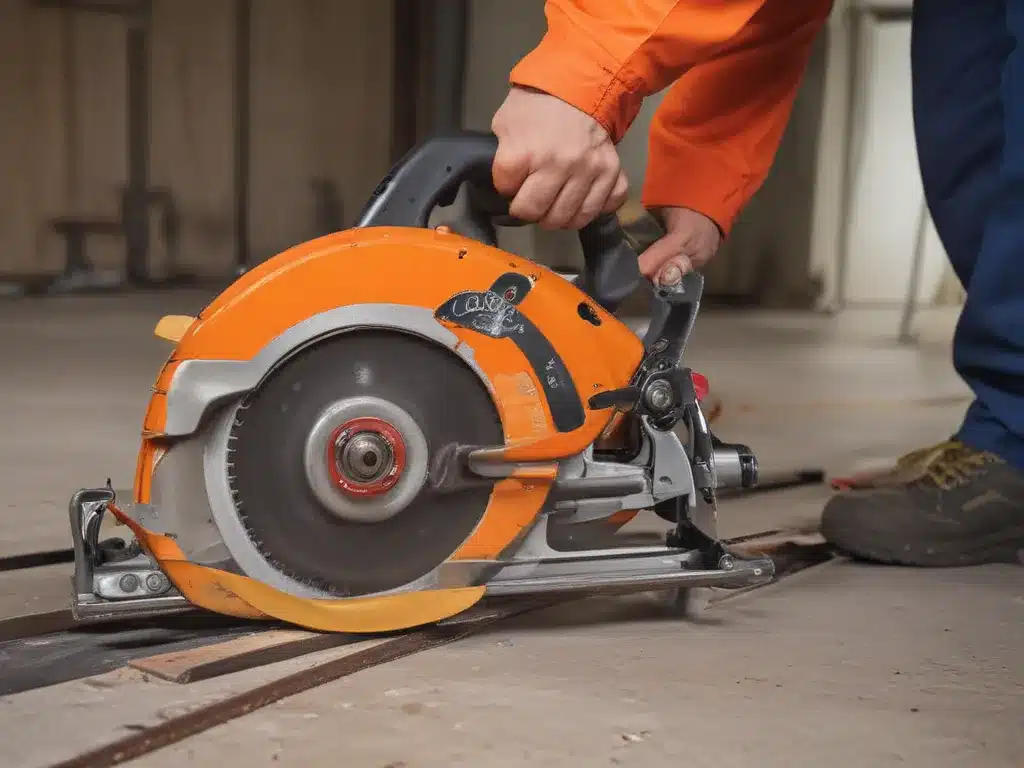The Portable vs. Stationary Air Compressor Dilemma
As a passionate DIYer and home improvement enthusiast, I’ve often found myself standing in the middle of Home Depot, scratching my head and wondering – “Do I really need a portable air compressor or should I go for a stationary model?” It’s a common conundrum that many of us face when dealing with the world of power tools and air-powered equipment.
You see, both portable and stationary air compressors have their own unique advantages and disadvantages. The portable ones are great for on-the-go projects, offering the freedom to move them around as needed. But the stationary models often pack more power and are better suited for heavy-duty applications. So how does one decide which one is the right fit?
Well, my friends, after years of trial and error, numerous tool purchases, and many a heated debate with my workshop-loving buddies, I like to think I’ve developed a pretty good understanding of the key factors to consider. So, grab a cold one, settle in, and let’s dive deep into the world of portable versus stationary air compressors, shall we?
Portability and Mobility
The first and most obvious difference between these two types of air compressors is their portability. A portable air compressor, as the name suggests, is designed to be easily moved around. These lightweight, compact units often come equipped with wheels or handles, making them a breeze to transport from one job site to another.
This mobility is a game-changer for DIYers and contractors who need to tackle projects in various locations. I remember when I was working on a big landscaping job, having the ability to just wheel my portable compressor around the yard was a lifesaver. No more lugging a heavy, bulky machine from one corner of the property to the other.
On the other hand, stationary air compressors are, well, stationary. They’re typically larger, heavier, and intended to be placed in a fixed location, such as a workshop or garage. While this might not seem like a big deal, it can be a real hindrance if you need to move the compressor around frequently.
So, if your projects tend to take you to different locations, or if you need the flexibility to move your air compressor from one part of your workshop to another, a portable model is likely the way to go. But if you have a dedicated workspace and don’t need to constantly relocate your compressor, a stationary unit might be the better choice.
Power and Capacity
Now, let’s talk about the muscle behind these two types of air compressors. Stationary models generally pack more power and capacity compared to their portable counterparts. This is due to their larger size and the fact that they’re not constrained by the need for portability.
A typical stationary air compressor might have a tank capacity of 30 gallons or more, with horsepower ratings that can reach up to 5 or even 7.5 HP. This kind of power and volume is perfect for powering heavy-duty tools like impact wrenches, spray guns, and pneumatic nailers, as well as handling multiple tools simultaneously.
On the flip side, portable air compressors tend to have smaller tank sizes, usually ranging from 1 to 10 gallons, and lower horsepower, typically between 1 and 3 HP. While they may not be as beastly as their stationary counterparts, these portable units still pack a punch and are more than capable of driving most common air-powered tools used by DIYers and small-scale contractors.
So, if you’re tackling big, demanding jobs that require sustained, high-volume air output, a stationary air compressor is likely the better choice. But if your needs are more on the light to medium-duty side, a portable model might be all you need. Just remember to consider the specific power requirements of the tools you’ll be using.
Noise and Vibration
Another key difference between portable and stationary air compressors is the noise and vibration they produce.
Stationary air compressors, with their larger motors and higher-capacity tanks, tend to be louder and generate more vibration than their portable counterparts. This is due to the sheer power they pack and the fact that they’re not as well-insulated or dampened as portable models.
Now, I know what you’re thinking – “Noise and vibration? Who cares, as long as the thing gets the job done!” – but bear with me here. The excessive noise and vibration from a stationary air compressor can be a real nuisance, especially if your workshop or garage is located near living spaces. It can be disruptive to both you and your neighbors, not to mention the potential for fatigue and discomfort during prolonged use.
Portable air compressors, on the other hand, are generally designed with noise and vibration reduction in mind. They often feature advanced sound-dampening materials and engineered components that minimize the disruption. This makes them a much more user-friendly option, especially if you’re working in close quarters or in a shared living space.
So, if noise and vibration are a major concern for you – perhaps because you have a home workshop right next to your living room or your garage is located close to your neighbor’s bedroom – a portable air compressor might be the way to go. The added peace and quiet can be a game-changer.
Efficiency and Energy Consumption
Another aspect to consider when choosing between portable and stationary air compressors is their efficiency and energy consumption.
Stationary air compressors, with their larger motors and higher-capacity tanks, tend to be more energy-efficient overall. They’re designed to operate at peak performance for extended periods, making them better suited for heavy-duty, continuous use. This efficiency translates to lower energy bills and a more cost-effective long-term operation.
Portable air compressors, on the other hand, are often optimized for portability and convenience rather than pure efficiency. They may consume more energy per unit of air output, especially when running at full capacity for extended periods. This can be a consideration if you’re concerned about your energy usage and utility bills.
However, it’s worth noting that the energy consumption of an air compressor can also be influenced by factors such as the specific model, the type of motor (electric or gas-powered), and the overall design and engineering. So, it’s always a good idea to do your research and compare the energy efficiency ratings of different models, whether they’re portable or stationary.
Ultimately, if energy efficiency and cost-savings are high on your priority list, a stationary air compressor might be the better choice. But if portability and convenience are more important to you, the slightly higher energy consumption of a portable model might be a fair trade-off.
Maintenance and Upkeep
Lastly, let’s talk about the maintenance and upkeep required for portable and stationary air compressors.
Stationary air compressors, by virtue of their larger size and more complex design, generally require more extensive maintenance. Things like oil changes, filter replacements, and overall system checks need to be performed on a regular basis to ensure optimal performance and longevity.
Additionally, the sheer size and weight of a stationary compressor can make certain maintenance tasks, such as moving the unit or accessing hard-to-reach components, more challenging. This can translate to higher maintenance costs and a greater time investment on the part of the owner.
Portable air compressors, on the other hand, tend to be simpler in design and easier to maintain. Many portable models are designed with user-friendly features, such as easy-access filters and oil drain valves, that make routine maintenance a breeze. And since they’re smaller and lighter, even tasks like moving the compressor or performing a thorough cleaning are generally less of a hassle.
Now, I know what you’re thinking – “But won’t I have to maintain my portable compressor more often since I’m using it in different environments?” – and that’s a fair point. The frequent transportation and varied operating conditions of a portable unit can indeed put more wear and tear on certain components. However, the overall maintenance requirements are often still less demanding than those of a stationary compressor.
So, if you’re the type of person who loves tinkering with your tools and doesn’t mind dedicating a bit of time to maintenance, a stationary air compressor might be a good fit. But if you’re looking for a more low-maintenance option that won’t require as much of your time and effort, a portable model might be the way to go.
Choosing the Right Air Compressor for Your Needs
Alright, so we’ve covered the key differences between portable and stationary air compressors – their portability and mobility, power and capacity, noise and vibration, efficiency and energy consumption, and maintenance requirements. Now, the big question is: which one is the right choice for you?
Well, my friends, the answer to that question ultimately comes down to your specific needs and the type of projects you’ll be tackling. Are you a DIYer who loves to take on a wide range of tasks, from home renovations to automotive repairs? Then a portable air compressor might be the perfect fit, offering the freedom to move it around as needed.
Or perhaps you’re a professional contractor who specializes in heavy-duty construction work. In that case, a stationary air compressor with its greater power and capacity might be the way to go, allowing you to tackle the toughest jobs with ease.
And let’s not forget about factors like noise, energy efficiency, and maintenance – these can also play a crucial role in your decision-making process, depending on your personal preferences and the environment you’ll be working in.
Ultimately, the choice between a portable and stationary air compressor is a highly personal one, and there’s no one-size-fits-all solution. But by carefully considering your specific needs and weighing the pros and cons of each type, I’m confident you’ll be able to find the perfect air compressor to power your next project.
So, what are you waiting for? It’s time to unleash your inner power tool enthusiast and start exploring the wonderful world of air compressors! Who knows, you might just discover the perfect match that will take your DIY game to new heights.
Ready to Upgrade Your Power Tools Arsenal?
If you’re in the market for a reliable air compressor, be sure to check out PowerToolsPros.net. They offer a wide selection of top-quality portable and stationary air compressors, along with a wealth of expert advice and resources to help you make the best choice for your needs.
Whether you’re a seasoned DIY pro or just starting to build up your power tool collection, the team at PowerToolsPros.net is here to guide you every step of the way. So why wait? Head over to their website and start exploring the endless possibilities of air-powered tools and equipment!


